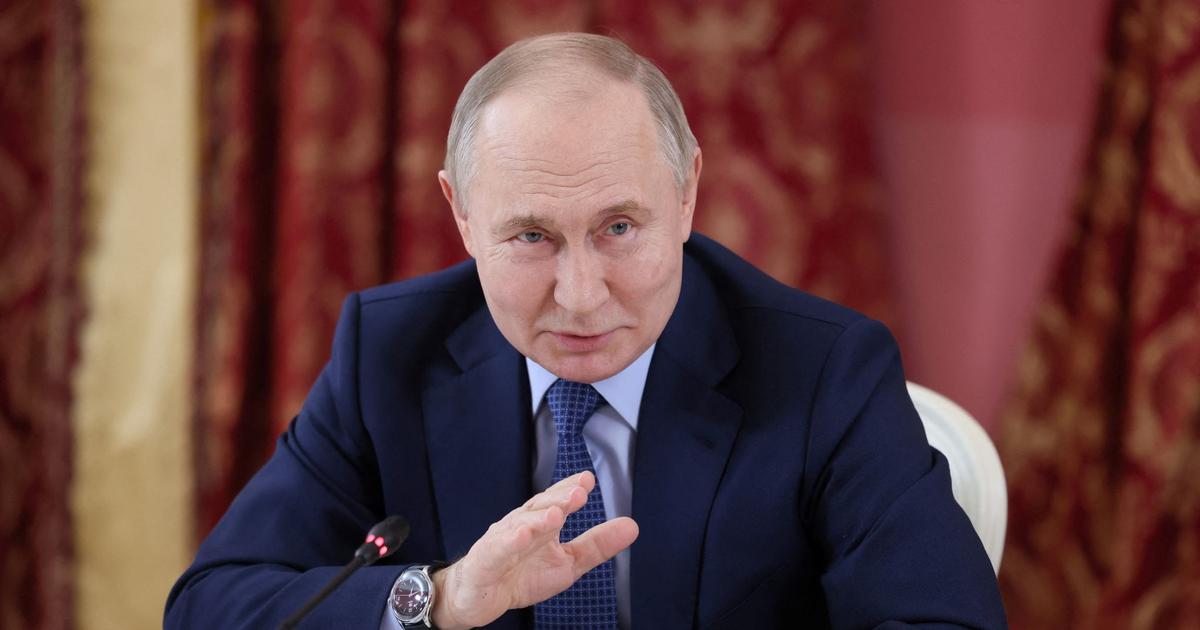Despite the snow, the cold and recent Ukrainian military successes, Russia is preparing to launch a major offensive this winter, Ukrainian officials have been insisting on international media since December 14.
The Russians "are planning large-scale infantry attacks", assured Mykhaïlo Podoliak, adviser to the Ukrainian President, Volodymyr Zelensky, to the New York Times, Sunday, December 18. Three days earlier, the Ukrainian leader and its army chief, Oleksandr Syrsky, made the same observation in an article in The Economist magazine.
Ukrainian communication operation?
There is even talk, according to some Ukrainian military officials, of a new Russian attempt to take kyiv before the end of winter, underlines the German daily Frankfurter Allgemeine Zeitung.
Valeri Zaloujny, commander-in-chief of the Ukrainian armies, has thus indicated that the Russians could intensify their effort in the Donbass, target the city of Dnipro (north of Zaporijia) or even try to reach kyiv from Belarus.
Ukrainian assertions which are surprising.
Most observers who follow the evolution of the front in Ukraine, such as the Institute for the Study of War (American Institute of War Studies), have pointed out for weeks that the Russian army is currently strengthening its defensive positions.
The succession of Russian military setbacks in recent weeks - including the notable loss of Kherson in early November - and reports of the chronic lack of equipment for Russian soldiers also suggest that some kind of winter truce could have allowed the Russians to strengthen.
“They clearly don't have the logistical means to carry out a large-scale operation at the moment”, assures Jeff Hawn, specialist in Russian military issues and external consultant for the New Lines Institute, an American center for geopolitical research.
Hence the hypothesis that kyiv was able to darken the picture somewhat to ensure that Western countries continue to send military equipment to Ukraine, underlines the New York Times.
It wouldn't be surprising if kyiv were so vehemently brandishing the specter of a “vast ground offensive” to come, suggests Huseyn Aliyev, a specialist in the Ukrainian-Russian conflict at the University of Glasgow.
“Westerners are currently sending mainly anti-aircraft defenses to counter Russian bombardments, but with the fighting around the city of Bakhmout [in eastern Ukraine, ND], and the possible desire to launch a new counter-offensive, kyiv also needs ground equipment, such as tanks and ammunition”, underlines Huseyn Aliyev.
Russian generals who want to save their position
However, the warnings about a Russian “winter offensive” are not necessarily just a vast communication operation.
“We are currently witnessing an intensification of the movement of troops and equipment to positions in Russia near the border,” said Sim Tack, a military analyst for Forces Analysis, a conflict monitoring company.
This expert himself observed a recent concentration of new armored vehicles and the construction of tents around military bases near the town of Rovenki, a few kilometers from the Ukrainian border between Kharkiv and Luhansk.
"It is possible that the same phenomenon is currently occurring in other military bases on the Russian-Ukrainian border currently", specifies this specialist.
>>
To read: In the trenches at Bakhmout, where the Ukrainians repel the Russian assaults
This deployment of equipment and new troops can be a harbinger, but “it can also be simply the sending of equipment and men to reinforce the lines of defense”, wishes to qualify Sim Tack.
The idea of a winter offensive also makes sense politically in Russia.
“After the recent setbacks by the Russian military, the Kremlin is looking for scapegoats, and many generals will want to quickly achieve some military success to prove they are still useful,” notes Jeff Hawn.
This is all the more urgent as figures on the fringes of the traditional Russian military world - such as Evgueni Prigojine, the boss of the Wagner mercenary group, or the Chechen military leader Ramzan Kadyrov - are trying to convince Vladimir Putin that they could do better than the headquarters in place.
The bite of winter
These soldiers would also like to attack as quickly as possible because “they know that the Ukrainian technological advantage, due to Western support, will only grow as the reserves of military equipment run out in Russia”, explains Jeff Hawn.
Even if it means facing the great cold in Ukraine.
All the experts interviewed by France 24 agree that the Russian army should suffer more from the winter than the Ukrainian forces.
"The Ukrainians have more modern and reliable equipment, while the Russians no longer have enough food to last long on the front," notes Sim Tack.
This is one of the reasons why the prospect of several Russian offensives to recapture villages or towns - but not a large attack on the whole front - seems credible to this specialist.
The Russian troops will prefer to spend the winter in cities rather than in makeshift shelters built in the open countryside.
In this regard, “the battle of Bakhmout is exemplary of what could be prepared: this city is not only a door to push the offensive towards the strategic targets of Sloviansk or Kramatorsk, it could also be a rear base for Russian forces. during the winter”, summarizes Sim Tack.
The summary of the
France 24 week invites you to come back to the news that marked the week
I subscribe
Take international news everywhere with you!
Download the France 24 app













